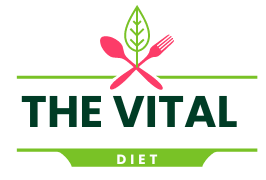
Understanding the role sugar plays in your body is crucial for maintaining a balanced diet and a healthy lifestyle. This article will delve into the world of sugar, from its different types to the impact it has on your body when consumed.
The Sweet Definition: What is Sugar?
The term ‘sugar’ encompasses both naturally occurring and added sugars. Natural sugars are present in a multitude of food items, including fruits, vegetables, and dairy products. Added sugars, on the other hand, are sweeteners not inherently present in food, such as honey, maple syrup, corn syrup, and molasses1.
When sugar enters our system, our digestive enzymes break it down into glucose, the form of sugar our cells use for energy. This process starts immediately, with enzymes in our saliva initiating the breakdown of sugar1.
Code for understanding sugar breakdown
python Copy code
def sugar_breakdown(sugar): glucose = sugar // enzymes return glucose
The Energy Boost: Benefits of Sugar
Consuming sugar carries several benefits, including providing energy, enhancing mood, and offering nutrients from natural sources.
Energy Provider
Sugar fuels our body by breaking down into glucose, which our cells and muscles use for energy. Without sufficient sugar, you might experience fatigue and mental fog2.
Mood Enhancer
Consuming sugar triggers the release of dopamine, a neurotransmitter responsible for pleasure and motivation in the brain3. This is why you often feel happier after eating something sweet.
Nutrient Supplier
Natural sources of sugar, such as fruits and vegetables, are packed with vital nutrients like vitamins, minerals, antioxidants, and fiber4.
The Flip Side: Risks of Excessive Sugar Consumption
Despite its benefits, excessive sugar consumption can lead to several health issues. The U.S. Dietary Guidelines for Americans recommends that added sugar make up less than 10% of your daily caloric intake5.
Energy Crash
Consuming large amounts of refined carbohydrates and added sugar can lead to a rapid rise in blood sugar, followed by a crash, leaving you feeling sluggish and fatigued6.
Chronic Disease Connection
Excessive added sugar consumption has been linked to a higher risk of chronic diseases, such as heart disease, type 2 diabetes, and cognitive decline7.
Potential for Addiction
Sugar releases soothing chemicals in the brain, which can lead to a dependency on sweets for stress relief8.
Tailoring Your Sugar Intake
There’s no one-size-fits-all recommendation for daily sugar consumption. However, it’s essential to maintain a balanced diet by including a source of carbohydrates, protein, and fat at every meal9.
Consulting with a registered dietitian can provide personalized guidance on balancing your diet and understanding how sugar affects your body.
Footnotes
- Huang, Y., Chen, Z., Chen, B., et al. (2023). Dietary sugar consumption and health: Umbrella review. BMJ, 381, e071609. ↩ ↩2
- Adeva-Andany, MM., Pérez-Felpete, N., Fernández-Fernández, C., Donapetry-García, C., Pazos-García, C. (2016). Liver glucose metabolism in humans. Biosci Rep, 36(6), e00416. ↩
- Kullmann, S., Kleinridders, A., Small, DM., et al. (2020). Central nervous pathways of insulin action in the control of metabolism and food intake. Lancet Diabetes Endocrinol, 8(6), 524-534. ↩
- Nestel, PJ., Mori, TA. (2022). Dietary patterns, dietary nutrients and cardiovascular disease. Rev Cardiovasc Med, 23(1), 17. ↩
- U.S. Food and Drug Administration. (2024). Added sugars on the new nutrition facts label. ↩
- Mantantzis, K., Schlaghecken, F., Sünram-Lea, SI., Maylor, EA. (2019). Sugar rush or sugar crash? A meta-analysis of carbohydrate effects on mood. Neuroscience & Biobehavioral Reviews, 101, 45-67. ↩
- Rippe, JM., Angelopoulos, TJ. (2016). Relationship between added sugars consumption and chronic disease risk factors: Current understanding. Nutrients, 8(11), 697. ↩
- Tryon, MS., Stanhope, KL., Epel, ES., et al. (2015). Excessive sugar consumption may be a difficult habit to break: A view from the brain and body. The Journal of Clinical Endocrinology & Metabolism, 100(6), 2239-2247. ↩
- VenHuizen, D. (2024). Personal communication. ↩





